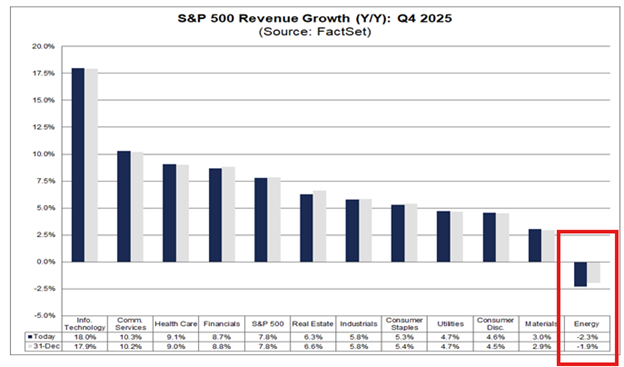 In a moment that would have made the progressive eugenicist Margaret Sanger proud, former Fed chair Janet Yellen extoled the virtues of high abortion rates among poor women, as they allow them to have higher labor force participation rates. Paraphrasing Sanger, who is the intellectual founder of the modern abortion industry, Yellen’s argument was plain: it is cruel for parents to bring children into a state of poverty; therefore, it is humane to incentivize abortion among the poor.
In a moment that would have made the progressive eugenicist Margaret Sanger proud, former Fed chair Janet Yellen extoled the virtues of high abortion rates among poor women, as they allow them to have higher labor force participation rates. Paraphrasing Sanger, who is the intellectual founder of the modern abortion industry, Yellen’s argument was plain: it is cruel for parents to bring children into a state of poverty; therefore, it is humane to incentivize abortion among the poor.
California representative and chair of the Progressive Caucus of the Democratic Party Katie Porter expressed a similar sentiment before a CNBC audience, remarking that “things like inflation can happen” as a justification for the Democrats’ now failed attempt to enshrine unfettered abortion access in federal law.
Yellen’s inability and unwillingness to articulate the Fed’s role in creating lowered purchasing power among the poor is maddening but not surprising. Porter’s comments beg the question: If inflation goes to zero, then does the need for abortions among the poor go away as well?”
While no reasonable person should hold their breath for an answer from either of these politicians, their comments unwittingly reveal an important causal link in human action. That is, in a modern, wealthy society, the households that are harmed by lost purchasing power from money supply expansion are less likely to bring children into the world, all things held equal.
The qualification of “modern wealthy society” leans on Gary Becker and Robert Barro’s contention that real net costs in raising children reduce total fertility in families. While all human action is based on individual subjective valuations it’s safe to say that an ongoing loss of real income and wealth can be among the data points that people use to derive their preferences. As the interventions of the Fed alter the structure of prices, income, and wealth it is certainly plausible that these changes can impact fertility choices. With that said, one could simply think about the reality that the poor in the US are among those harmed by money supply expansion as articulated by Richard Cantillon. The increasing lack of purchasing power over time, creates the tendency for these households to have fewer children than they otherwise would have. This results because each childbirth represents a net loss in real wealth. The reasons for this outcome in a developed economy are quite simple. In most wealthy nations, child labor and panhandling are unnecessary because those nations have enriched themselves via the international division of labor. This has also had the welcome effect of eliminating a household’s perceived need to supply children to traffickers, which sadly remains a scourge of the developing world.
What Becker and Barro fail to account for is that wealthy and poor nations alike may also allow fiat central banking. What this omission fails to capture is the reality of a harmed class who lose purchasing power over time under inflationary regimes. It is just such households that Yellen and Porter have described as having a need for abortion access due to their financial distress.
The destruction of human life (or potential life, for some) resulting from central banking is implied by Jörg Guido Hülsmann’s attack on fiat currency. His observation is that such regimes are socially destructive and that they tend to increase the financial fragility of households. This fragility can be particularly crushing among the poorer classes, as fiat inflation is deemed to be a “juggernaut of social, economic, cultural, and spiritual destruction.” It turns out that part of this social destruction may very well include the negation of the society shared between mother, father, and yet-to-be-seen (or, as some might say, unseen) child.
Even if one gives the pro-choice/proabortion faction the full benefit of the doubt by conceding that they don’t want ANY abortions to occur and would prefer that the only pregnancies were wanted pregnancies, thus eliminating the need for abortion, the logic that connects inflationism to abortionism still stands. It could be additionally reasoned that inflationism represents a boon to the contraception industry as a whole. While such a connection might seem trivial, recent observations from Saifedean Ammous noted how inflation is a means to lower the cost of reckless behavior in financial markets. I’m simply suggesting that inflationism might generate moral hazard in sexual behavior as well.
If Yellen and Porter’s shared goal is to continue to boost female labor force participation and engage women in what Josef Pieper called “proletarianization,” where “total work” is the norm, then the inflation-abortion connection is certainly an effective means to achieve it. Yellen further justified this reasoning to Senator Bob Menendez by contending that increased—and presumably federally funded—access to abortion generates better educational and economic outcomes for those children conceived later in a woman’s life. Such irony could only be lost on the most ardent abortionist.
Setting aside the existing moral arguments for or against abortion, an understanding of the connection between money supply increases and the heightened likelihood of abortions among the poor may contribute to the Austro-libertarian discussion on the question of the morality of abortion. If it is indeed the case that an increased likelihood of abortion among the poor is one of the myriad social consequences of the Fed’s currency debasement, then the would-be-born could also rejoice at the central bank’s abortion.
Full story here Are you the author? Previous post See more for Next postTags: Featured,newsletter































